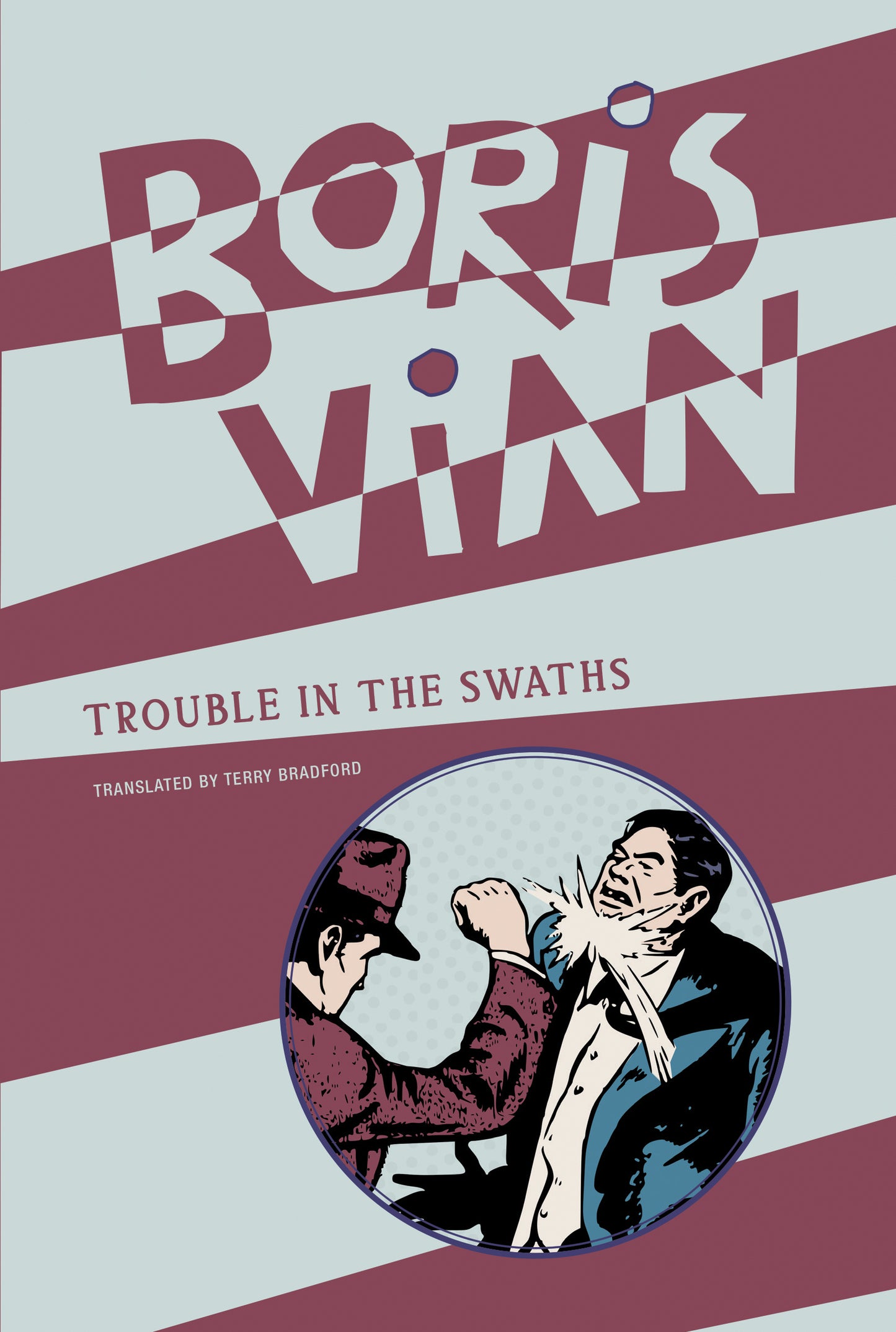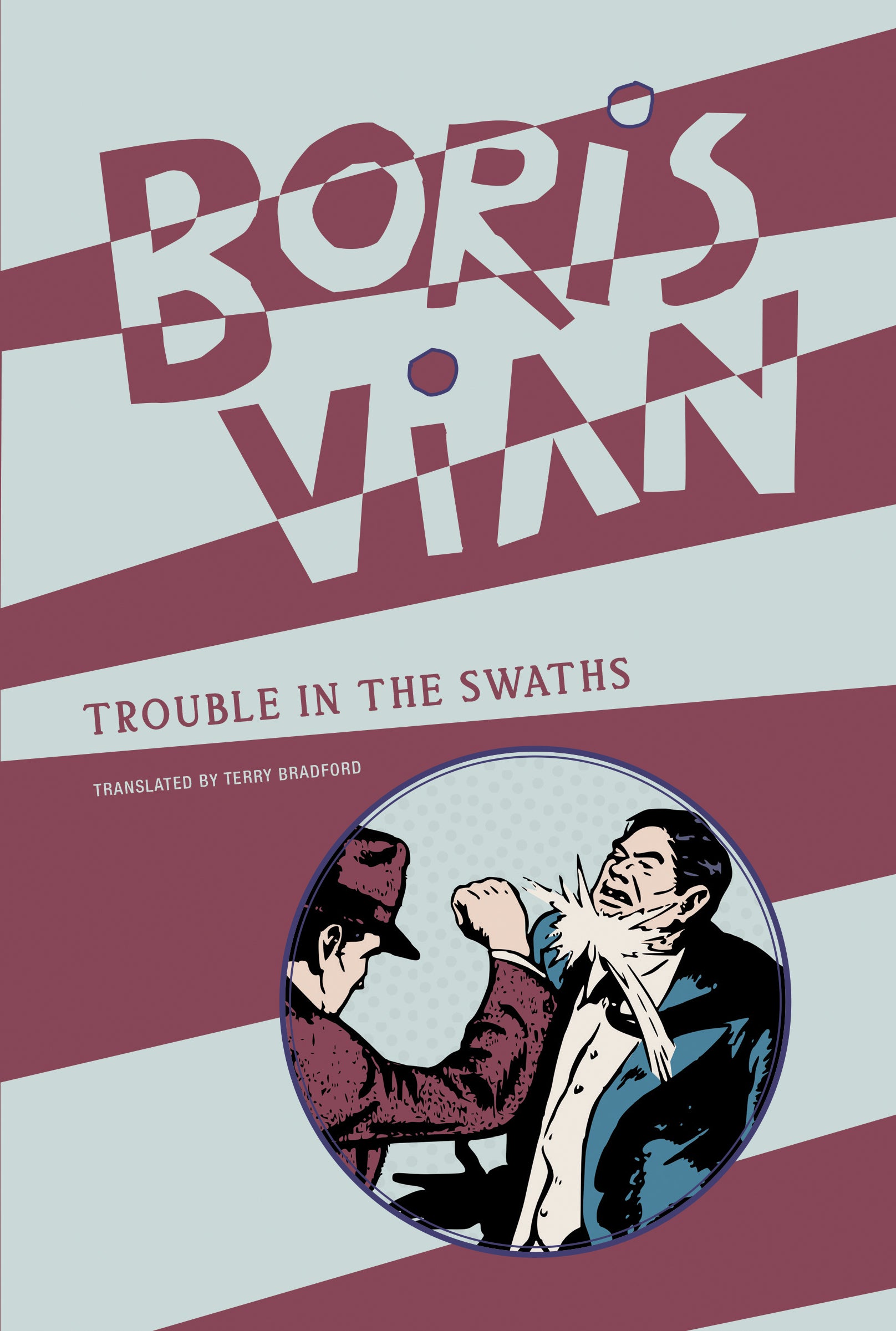Trouble in the Swaths
Trouble in the Swaths
Boris Vian
Couldn't load pickup availability
Translated, with an introduction, by Terry Bradford / May 2024 / 5.375 x 8, 128 pp. / 978-1-939663-96-2
First published posthumously in 1966, Trouble in the Swaths was written for a small audience of family and friends during the Nazi Occupation of Paris, but it presented little evidence of those dark years. It is a flippant, at times outrageous parody of genre fiction laced through with bursts of Sadean violence, absurdist slapstick, and excessive wordplay in which Vian makes his fictionalized debut under such anagrammed monikers as the Baron Visi and the detective Brisavion.
Preceding Ian Fleming’s novels by several years, Trouble in the Swaths nonetheless anticipates and ridicules such spy thrillers and their sexism, casual murders, plot twists, and technological gadgetry. The plot quickly shifts from mock realist novel to comic-book escapade as our two young dandy heroes, Count Adelphin de Beaumashin and Sérafinio Alvaraide, quickly abandon the Baroness Pyssenlied’s party to set off on a quest for a missing artifact. The adventure involves bombs and machine guns, planes and parachutes, trapdoors and underground caverns, a secret manuscript that endeavors to absorb the novel, and, at the center of it all, the core of the narrative maelstrom: the forked barbarin.
Boris Vian (1920–1959) was a French polymath who in his short life managed to inhabit the roles of writer, poet, playwright, musician, singer/songwriter, translator, music critic, actor, inventor, and engineer. He died of a cardiac arrest at the age of 39 after authoring ten novels, several volumes of short stories, plays, operas, articles, and nearly 500 songs. Vian is remembered as one of the reigning spirits of the postwar Parisian Latin quarter, a friend to everyone from Jean-Paul Sartre, Raymond Queneau, and Miles Davis, playing trumpet with Claude Abadie and Claude Luter, and an influence on such future kindred spirits as Serge Gainsbourg.


